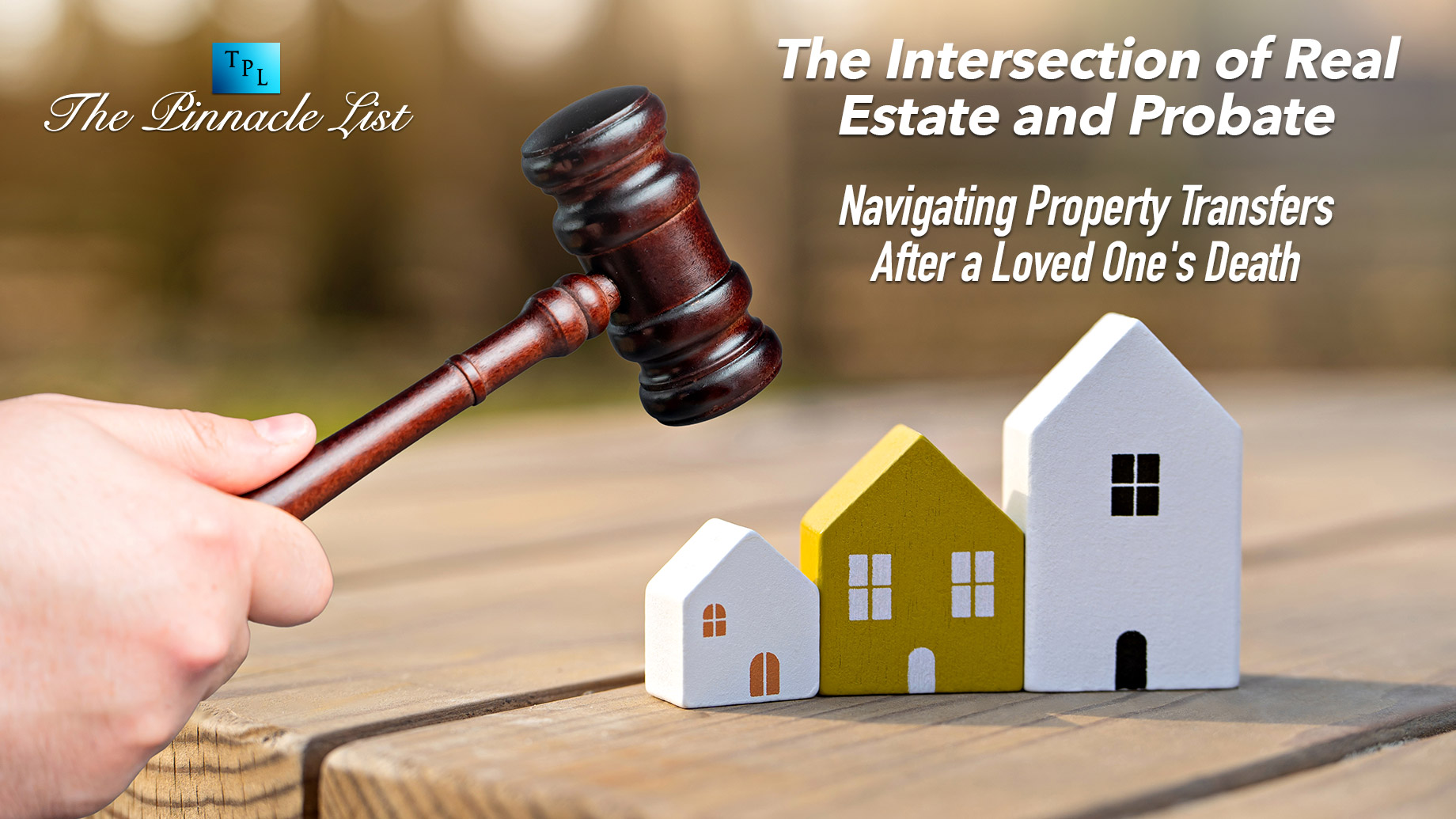
The death of a loved one is always an emotional and challenging time. In addition to the sorrow, there are often lots of legal and financial issues that need to be sorted out, one of the most important being the transfer of any real estate they may have possessed. The process frequently cuts across the probate law by which the estate of a deceased person is distributed under the law. Being knowledgeable about how probate applies to real estate transfers will enable you to avoid unnecessary delays and increased costs and complications related to this process.
Probate: What is It?
Probate is the process of law that follows a person’s death wherein the assets of the deceased are determined, the liabilities of his estate are settled, and the distribution of the remaining property is done based on his will or, in case of no will, by the statute. Real estate often comprises the majority of the assets of most estates and, thus, plays a significant part in the process of probate.
Real Estate in Probate: Key Considerations
When real estate is part of a deceased person’s estate, it generally cannot be sold or transferred immediately after death. It first needs to go through the probate process unless it was set up to bypass probate through tools such as living trusts, joint ownership with rights of survivorship, or beneficiary deeds.
Key items of focus when addressing real estate in probate:
- Title and Ownership: Title and ownership determine how property is held and how that property will transfer. If the decedent held the property jointly with another person with rights of survivorship, it follows that the property would automatically go directly to the co-owner surviving them. On the other hand, property solely held in the name of the deceased alone must go through probate before the distribution or sale can happen.
- Wills and intestate succession: First, there is the question of the will of the deceased. If the will was valid, then therein should lie the stipulation of who should inherit the property. In the absence of a will, state intestate laws determine the rightful heirs, usually immediate family members like spouses, children, or even other relatives. The court will oversee the distribution in such cases, which can lead to delays.
- Executor’s Responsibility: The executor or personal representative, named in the last will, which may also be appointed by the court, is supposed to manage the estate. This includes making payments related to any outstanding debts against the property, such as mortgages or property taxes before the real estate can be distributed to heirs or sold. Sometimes, if the executor decides to sell the property because of debts that need to be paid or for the distribution of the assets, then this might require court approval.
Avoiding Probate: Strategies of Estate Planning for Real Estate
Following are some estate planning strategies that would make the transfer of real estate comparatively easy on one’s death and thus avoid the whole probate process:
- Living Trusts: A living trust allows a settler, during his or her lifetime, to convey the title of the property to place it in trust for the benefit of named beneficiaries. On the death of the owner of such property, it is managed or transferred by the trustee without going to probate in accordance with the instrument that created the trust.
- Joint Ownership: Properties jointly owned and subjected to rights of survivorship automatically benefit the survivor upon the death of the other owner, bypassing probate.
- Beneficiary Deeds: A few states allow owners of the property to sign a Transfer on Death (TOD) deed naming a beneficiary. The named beneficiary will automatically inherit the property upon the death of the owner. This method also bypasses probate.
Challenges in Real Estate Probate
Real estate probate can be extremely problematic. Problems may involve disputes among heirs, long delays in complicated probate court proceedings, and even harm to the selling or maintenance of the property during probate.
More often than not, all beneficiaries do not agree on whether the inherited property should be sold or used. Also, if the estate has debts, the creditors can take over the house’s assets and make the property transfer even more complex.
Importance of Professional Guidance
The transaction of real estate and probate is intricate, as not only does it vary from state to state, but there is a lot of paperwork and deadlines involved with the legal process. The services provided by professionals, such as probate lawyers, are usually indispensable to bear in mind so that the entire process may go smoothly and in order. A probate attorney can help the executor and heirs wade through the terms of probate law, such as filing the appropriate paperwork, resolving possible disputes, and ensuring that real estate transfers are carried out in conformity with the law.
Real estate is one of the biggest assets in a loved one’s estate, which has to be correctly transferred to heirs or beneficiaries. Whether the case is probate proceedings or by use of estate planning documents that enable transfers, knowing the right legal proceedings will surely help in avoiding delays and legal complications. If you find yourself at an intersection of real estate and probate, seeking a probate attorney for guidance can provide peace of mind and result in a smoother process during what is no doubt a trying time.